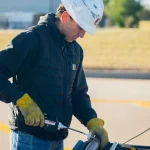Dialysis centers employ dialysis patient care technicians to assist clients and ensure their safety as they undergo routine procedures. These technicians monitor patients before, during and after each procedure and therefore are trained to provide quality healthcare to patients undergoing dialysis.
What does a dialysis patient care technician do?
A dialysis technician assists the nephrology nurse in providing safe and hygienic treatments to patients. This involves cleaning and disinfecting tools and equipment used in dialysis and other procedures, ensuring that dialysis areas are safe from any hazards, and prep the area for the procedure. The technician is also responsible for taking the patient’s history, vital signs, reactions to previous dialysis sessions and other vital information. He or she then logs this information in the patient’s chart.
The technician is also responsible for conducting patient education including how to care for any wounds or fistulas, nutrition and diet information and the like. He or she is tasked with proper documentation of each and every therapeutic intervention administered as well as patient observations that need to be relayed to the nurses or the doctor.
Certification and Licensing
To be a dialysis technician, one must have a high school diploma or GED and current CPR certification. Job-specific skills are typically learned during on-the-job training and certified accordingly.
Working with Your Dialysis Technician
In most centers, these technicians are the ones in most contact with patients and therefore how a technician does his or her job will affect the overall experience that the patient has.
Your dialysis technician is there to listen to you about any concerns and questions about your condition and the procedure. He or she can answer questions and refer you to the nurse or doctor for related concerns. It is therefore important to be open to your technician and to tell him or her of any changes in your physiology as you undergo treatment.








